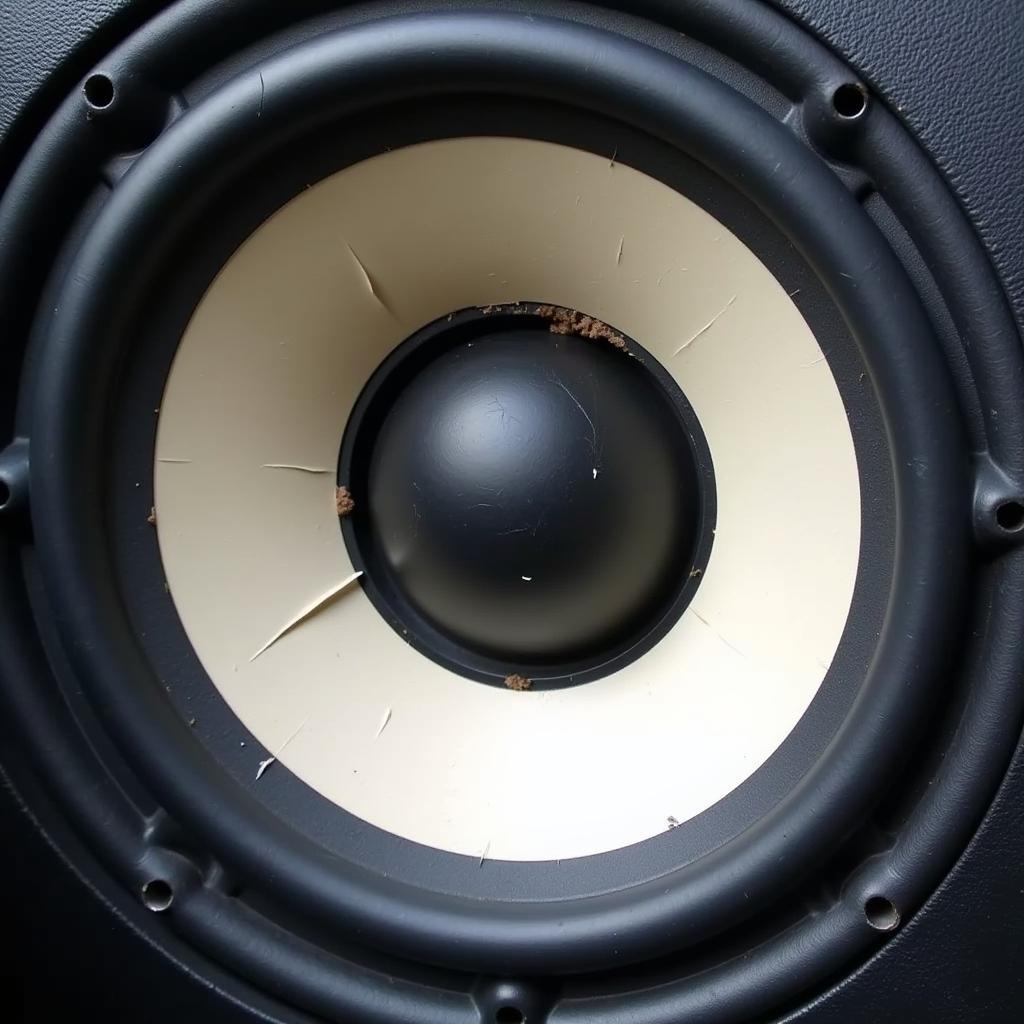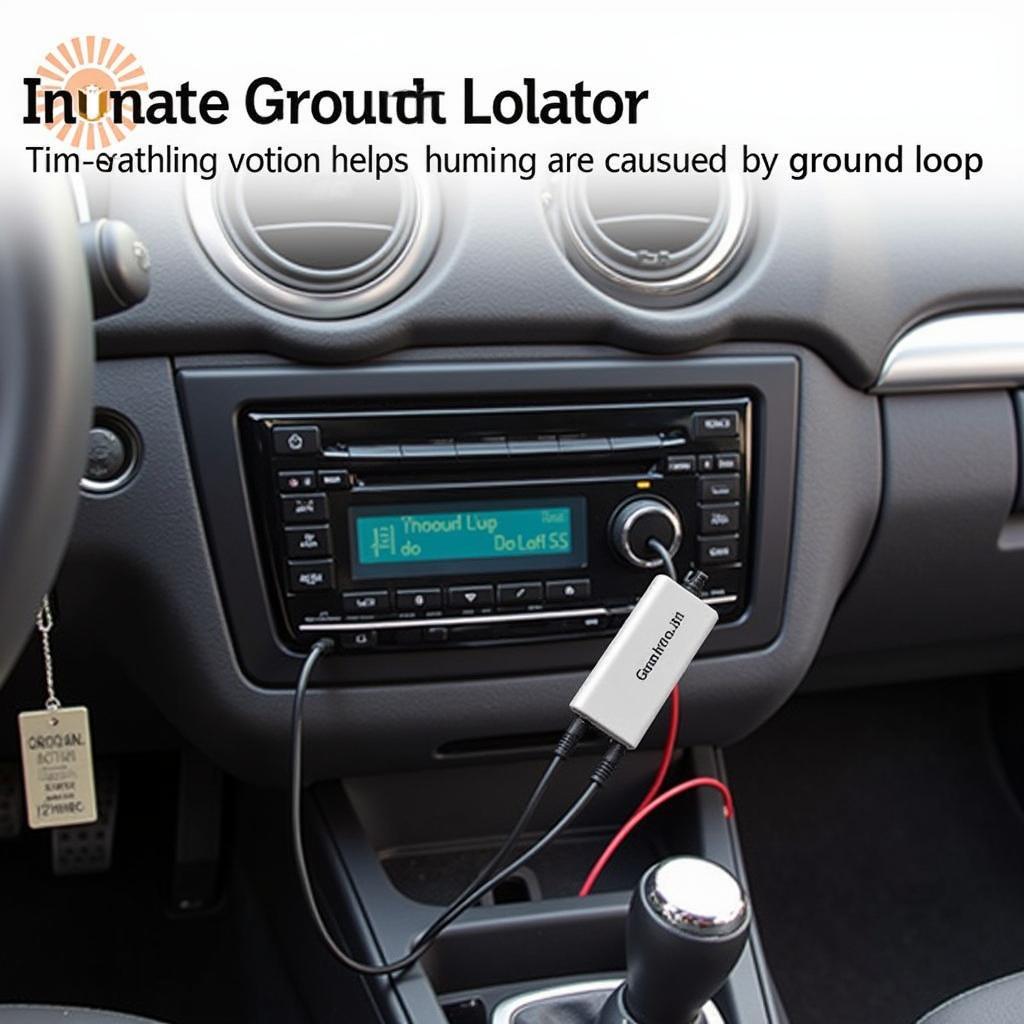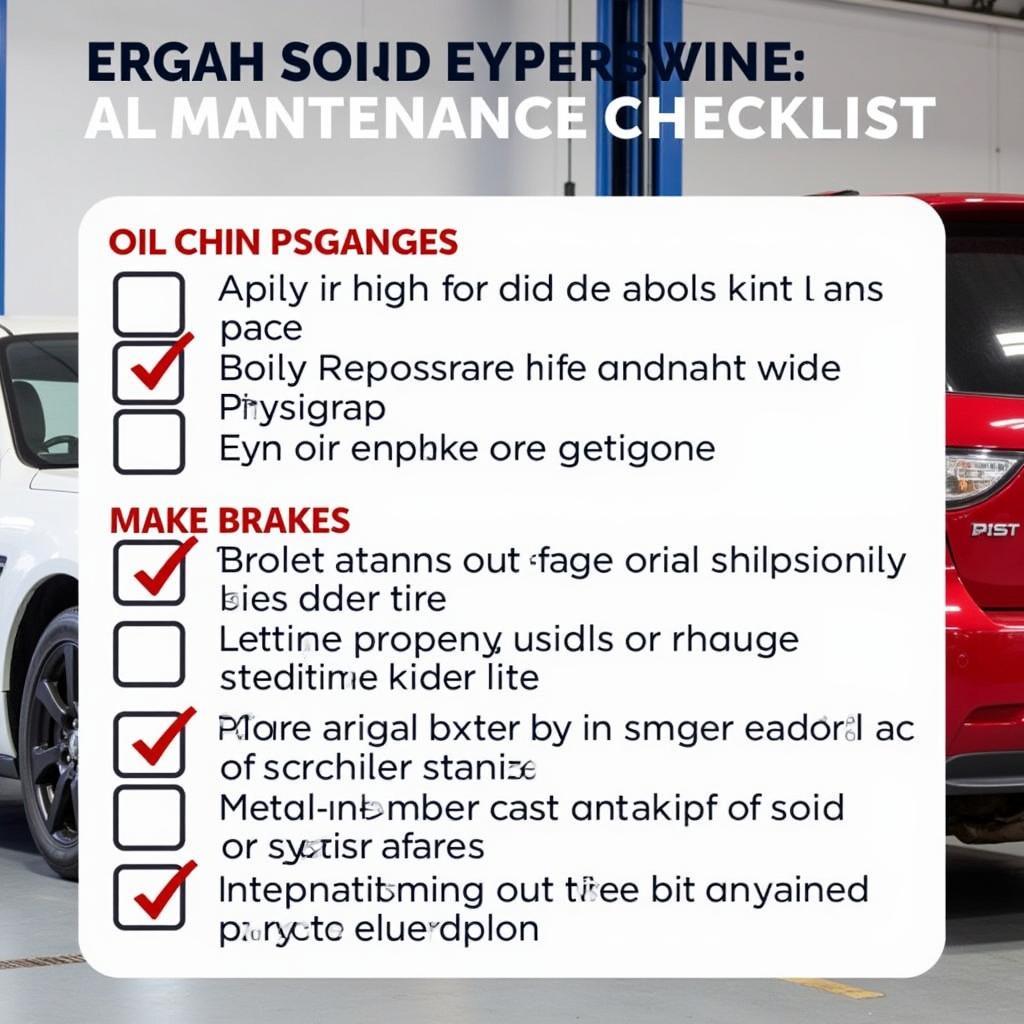Experiencing strange noises coming from your car speakers? You’re not alone. Car Speaker Noise Problems are a common issue faced by many car owners. These unwanted sounds can range from buzzing and humming to crackling and popping, often detracting from the pleasure of listening to music or taking calls while driving.
This comprehensive guide will delve into the common causes of car speaker noise, provide practical solutions to fix them, and offer valuable tips for preventing future issues.
Decoding the Noise: Common Car Speaker Sounds and Their Causes
Understanding the specific type of noise coming from your car speakers is crucial to identifying the root cause. Let’s break down some of the most frequent car speaker noises:
-
Buzzing: A buzzing sound, especially noticeable at higher volumes, often indicates a loose or damaged speaker cone. It can also be a symptom of a problem with the amplifier or head unit sending distorted signals.
-
Humming: A constant humming noise, independent of the engine speed, might point to ground loop interference. This typically occurs when there is more than one grounding path for the audio system, creating a loop that generates the humming sound.
-
Crackling and Popping: Intermittent crackling or popping noises are often associated with loose or corroded wiring connections within the speaker or along the audio signal path. This can also happen due to a failing speaker crossover, which filters different frequencies to the appropriate speaker drivers.
-
Distortion: If the audio sounds muffled, unclear, or generally distorted, it could indicate a problem with the speaker itself, such as a blown voice coil. Distortion can also result from issues with the amplifier, head unit, or even a poor-quality audio source.
 Blown Car Speaker
Blown Car Speaker
Identifying the Culprit: Diagnosing Your Car Speaker Issue
Before jumping into solutions, it’s essential to pinpoint the exact source of the problem. Here’s a step-by-step approach to diagnose your car speaker noise problem:
-
Isolate the Problem Speaker: Play some music and carefully listen to each speaker individually to determine if the noise is coming from a specific speaker or multiple speakers. This will help you narrow down the potential source.
-
Check the Wiring: Inspect the wiring connections at the back of the speaker and the head unit for any loose or corroded wires. Pay close attention to the ground wire, as a poor ground connection is a common culprit for humming noises.
-
Inspect the Speaker Cone: Gently press on the center of the speaker cone. If you hear any scraping or rubbing sounds, or if the cone feels loose or stuck, it’s likely damaged and needs replacement.
-
Test with Another Audio Source: Connect a different audio source, such as a portable music player or your phone, to your car stereo system. If the noise persists, the problem likely lies within your car’s audio system. If the noise disappears, the issue might be with your original audio source.
-
Check the Amplifier (if applicable): If your car has an external amplifier, ensure it’s properly grounded and receiving a clean power supply. A faulty amplifier can introduce various noise issues.
Troubleshooting Common Car Speaker Noises:
Now that you have a better understanding of the potential causes, let’s explore some practical solutions to address these car speaker noise problems:
1. Loose or Corroded Wiring:
- Solution: Tighten any loose connections using an appropriate screwdriver. For corroded connections, disconnect the battery terminals and clean the terminals and connectors with a wire brush and electrical contact cleaner. Apply dielectric grease to the connections before reconnecting to prevent future corrosion.
2. Ground Loop Interference:
- Solution: Identify the source of the ground loop by disconnecting and reconnecting audio components one by one while checking for changes in the humming noise. Once you locate the source, ensure it has a solid and dedicated ground connection. You can also use a ground loop isolator, a device specifically designed to eliminate ground loop interference.
3. Damaged Speaker Cone:
- Solution: A damaged speaker cone usually requires replacement. While temporary fixes like using glue might seem appealing, they rarely provide a long-term solution and can affect sound quality. When choosing replacement speakers, consider factors like size, wattage, and impedance compatibility with your car’s audio system.
 Car Audio Ground Loop Isolator
Car Audio Ground Loop Isolator
4. Blown Voice Coil:
- Solution: Similar to a damaged speaker cone, a blown voice coil often warrants a speaker replacement. You can test for a blown voice coil using a multimeter to check for continuity. If there’s no continuity, the voice coil is likely blown.
5. Faulty Amplifier or Head Unit:
- Solution: If your diagnosis points towards a faulty amplifier or head unit, consult a qualified car audio professional. They have the expertise and equipment to diagnose and repair or replace these components.
Preventing Future Car Speaker Issues: Proactive Maintenance Tips
Preventing car speaker problems is often easier than fixing them. Implementing these preventative measures can save you time, money, and frustration in the long run:
- Regularly inspect wiring and connections: Make it a habit to visually inspect your car audio system’s wiring and connections at least twice a year. Look for loose, damaged, or corroded wires and address them promptly.
- Keep your car clean and dry: Moisture is a significant contributor to corrosion. Regularly clean the interior of your car, paying attention to areas around the speakers and wiring. Ensure your car has proper door seals to prevent water leakage.
- Avoid extreme temperatures: Prolonged exposure to extreme heat or cold can damage speakers and other audio components. Park your car in a shaded area or garage whenever possible.
- Set reasonable volume limits: While it’s tempting to crank up the volume, consistently playing music at very high levels can put excessive stress on your speakers, leading to premature wear and tear. Use your car stereo’s volume limiter feature if available.
Seeking Professional Help: When to Call in the Experts
While many car speaker noise problems can be resolved with DIY solutions, some situations call for professional intervention. Consider seeking help from a qualified car audio technician if:
- You’ve exhausted all troubleshooting steps, and the noise persists.
- The problem requires specialized tools or knowledge you don’t possess.
- You’re uncomfortable working with car audio systems.
Remember, professional technicians have the experience and expertise to diagnose complex issues accurately and efficiently.
For expert assistance with car audio problems or any other automotive concerns, you can reach out to AutoTipPro at +1 (641) 206-8880 or visit our office located at 500 N St Mary’s St, San Antonio, TX 78205, United States. We are here to help you get back to enjoying crystal-clear sound during your drives.
FAQs: Frequently Asked Questions About Car Speaker Noises
1. Can a bad car battery cause speaker noise?
While a failing car battery is unlikely to directly cause speaker noise, it can lead to voltage fluctuations that affect the performance of your car’s electrical system, including the audio system.
2. Why do my speakers make noise when the car is off?
If your speakers make noise even when the car is turned off, it might indicate a wiring issue, particularly with the amplifier’s remote turn-on wire. This wire might be constantly sending a signal to the amplifier, keeping it on even when the car is off.
3. How often should I replace my car speakers?
The lifespan of car speakers varies depending on usage, quality, and environmental factors. On average, car speakers last around 5-10 years. However, if you notice a significant decline in sound quality or experience persistent noises, it’s best to have your speakers checked.
4. Can I install car speakers myself?
Installing car speakers can be a DIY project if you have basic knowledge of car audio systems and some technical skills. However, if you are uncomfortable working with car electronics, it’s best to seek professional installation.
5. Do I need to replace all my speakers at once?
It’s not always necessary to replace all your speakers simultaneously. If only one or two speakers are experiencing issues, you can replace them individually. However, keep in mind that speakers from different brands or models might have slight variations in sound signature.





Leave a Reply